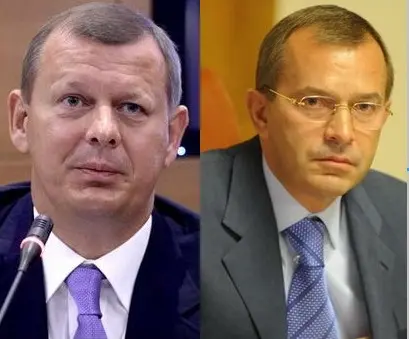Leshchenko reported that brothers Andriy Klyuyev, the recently appointed presidential chief of staff, and Serhiy Klyuyev, a lawmaker with the ruling Party of Regions, had violated Austrian laws by denying they were “politically exposed persons” – or PEPs — when completing bank documents.
When the documents were made public, the bank said the Klyuyevs made a mistake while the financial institution stated it knew they were PEPs.
- Obtain the most current Ukraine news articles released today.
- Get the newest Ukraine news reports as of today.
JOIN US ON TELEGRAM
Follow our coverage of the war on the @Kyivpost_official.
However, the Klyuyev brothers denied the allegations and called them a “planned informational attack of political opponents” in a statement released on Jan. 23 by Serhiy Klyuyev’s press-service. They denied signing the documents as well as being the final beneficiaries of CEE Clean Economic Energy AG.
Leshchenko’s article, published on Jan.23, exposed banking documents that were allegedly signed by the Klyuyev brothers in 2010 as the final beneficiaries of Austria-registered CEE Clean Economic Energy AG.
Submitted to Bank Vorarlberger Landes – und Hypothekenbank AG, the documents show that each brother indicated they were not PEPs when both were members of parliament. PEPs include public officials, their members and close associates whose financial sources banks are supposed to check when opening an account with their money under European Union and Austrian banking legislation.
Michael Grahammer, board chairman at the bank, stated that the incident is an honest mistake, according to a statement he published on Jan.27 in Austrian newspaper Der Standard. Moreover, Grahammer admitted the bank knew about the political affiliations of the Klyuyev brothers. Documents exposed in Leshchenko’s investigation are classified as confidential, according to the Austrian banking code.
Meanwhile, the documents on which Leshchenko’s story is based reveal that 85 percent of CEE Clean Economic Energy AG belongs to Slav AG, which the brothers established in Austria in 1994.

Vitaliy Shabunin, head of the Anticorruption Action Center, said the Klyuyev brothers didn’t mention they are PEPs intentionally.
“(The) Klyuyevs lied that they were not politically exposed persons, because as soon as the bank identifies that the final beneficiary is a PEP, it launches a special procedure of transaction checking and, what is most important, they start checking the source of the money. They lied because they couldn’t prove the money was earned in a legitimate way,”said Shabunin, adding that by calling this case a mistake, the bank clearly is taking the clients’ side.
Austria is a convenient place where rich foreigners can park their money, easily secure residency permits, open bank accounts and establish private entities, said Bohdan Yakymiuk, head of the Anti-Corruption Council of Ukraine.
Shabunin of the Anticorruption Action Center added, “I can understand Europeans – when they are choosing between real money in a country’s economy and problems of Ukraine, it’s obvious what they will choose. However, after the Ukrainian regime crossed the threshold of blood and provoked a huge wave of indignation in the media of European countries, European politicians can no longer be irresponsive.”
Everything depends on media and public pressure on the Austrian government, he concluded.
The Klyuyev brothers
reportedly own more than 70 companies in Ukraine that are directly or
indirectly related to Slav AG. Allegedly, one of their main businesses is Activ
Solar – a company that runs solar power stations in Ukraine, accounts for 87
percent of all local solar energy. It was registered by a company owned by Slav
AG in 2008. The stations built by
Activ Solar have been selling energy under a green tariff which is among the
highest in Europe – more than Hr 5 per kilowatt-hour as of 2013. The tariff was
introduced in Ukraine in 2009.
Activ Solar company
officials, however, deny the company is managed or owned by Klyuyev brothers.
In 2011, when Andriy Klyuyev headed the Inter-Departmental Governmental Commission on Energy, the company found itself at the center of an international scandal after the EU’s direct budgetary support to Ukraine of approximately $33 million was spent on connecting Activ Solar plants to the electricity grid instead of on energy efficiency projects as stipulated by the EU, according to public procurement watchdog Nashi Hroshi. However, State Agency on Energy Efficiency, the recipient of the funds, denied that the money was spent.
[Editor’s note: This article was updated to include commentary
from Activ Solar.]
Kyiv Post staff writer Anastasia Forina can be reached at forina@kyivpost.
You can also highlight the text and press Ctrl + Enter




